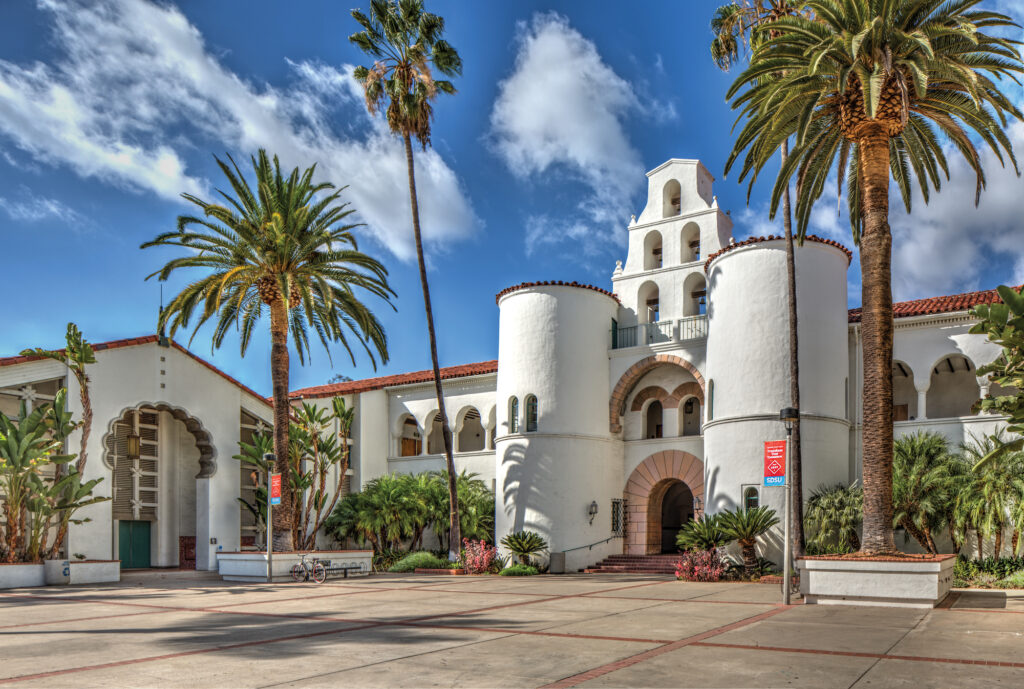
56th Annual Conference of the
International Visual Literacy Association
October 6-9, 2024 (in person)
November 4, 2024 (online)
Hosted by The Center for Visual Literacies
at San Diego State University
About the Conference
“Critical visual literacy is the ability to investigate the sociocultural contexts of visual texts to illuminate power relations” (Kim & Serrano, 2017, p.12).
The conference theme for this year is “Illuminating Perspectives through Critical Visual Literacy”. We invite you to explore and discuss various aspects of this theme with us as we delve into the realm of personal and collective meaning-making, agentive practice, and the transformation of sociopolitical realities.
At the heart of our conference is the recognition of the profound impact that visual representations have on our lives and society. Through critical visual literacy, we aim to shed light on the ways in which images, symbols, and narratives shape our understanding of the world.
This conference will be a hybrid conference featuring an online conference day Monday, November 4th with in-person conference events happening Sunday, October 6th through Wednesday, October 9th.
Presentations presented during the virtual part of the conference will occur according to the Central Time Zone.
About the Venue
San Diego State University (SDSU) is a public research university in San Diego, California. Founded in 1897 as San Diego Normal School, it is the third-oldest university and southernmost in the 23-member California State University (CSU) system.
The Center for Visual Literacies at SDSU is committed to leveraging the potentials of visual texts in education for two related goals: (1) providing specialized and equitable instruction that improves student learning through visually-integrated pedagogy and (2) exploring the potential of visual texts as data and for data analysis in qualitative inquiry.
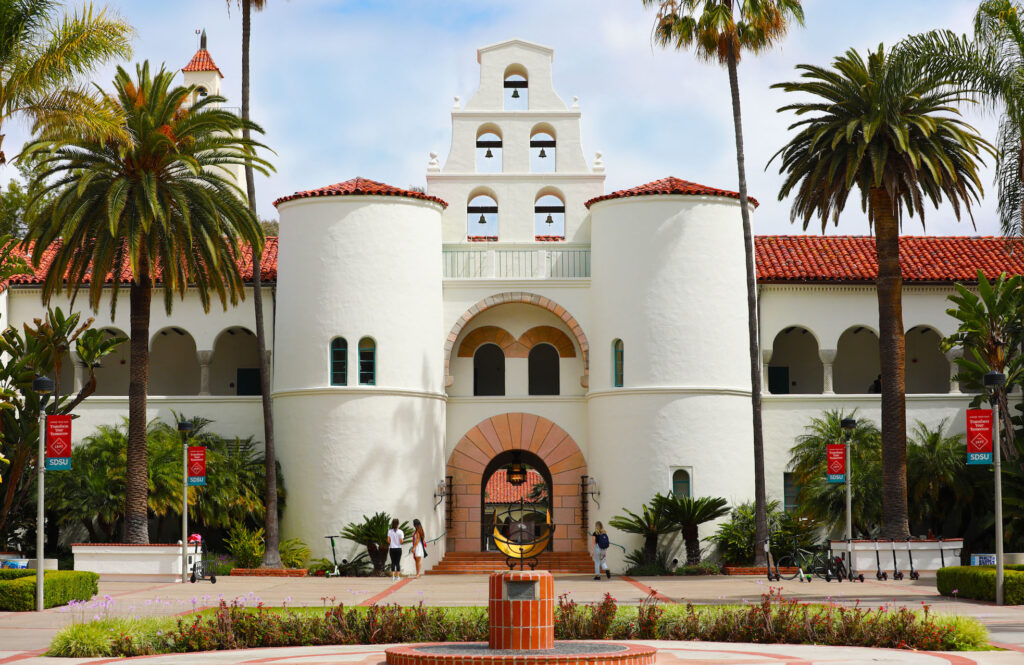
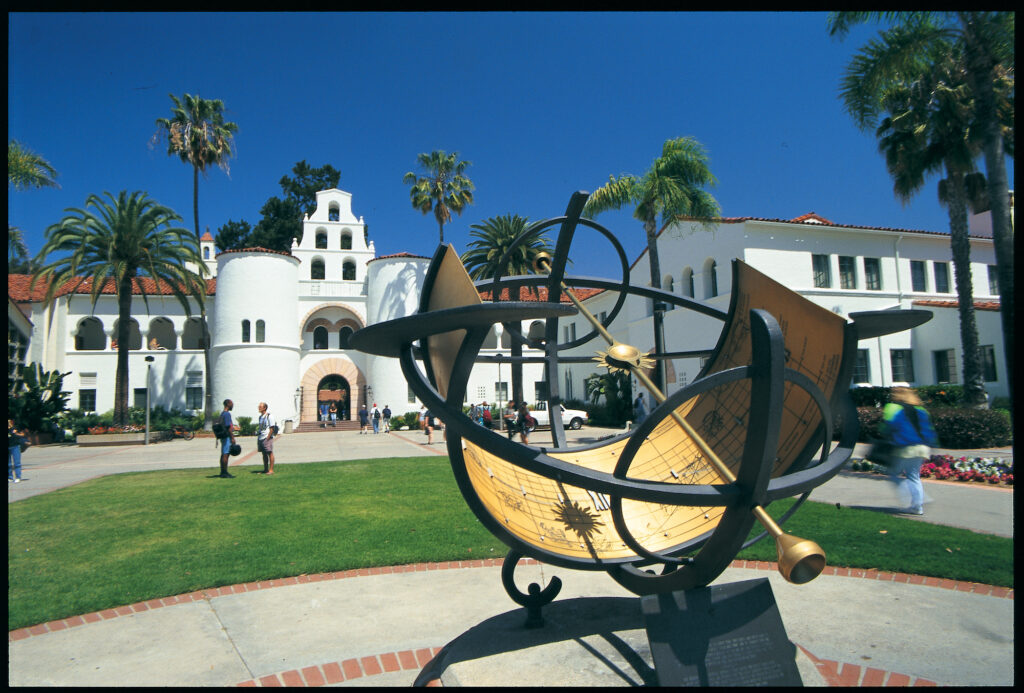
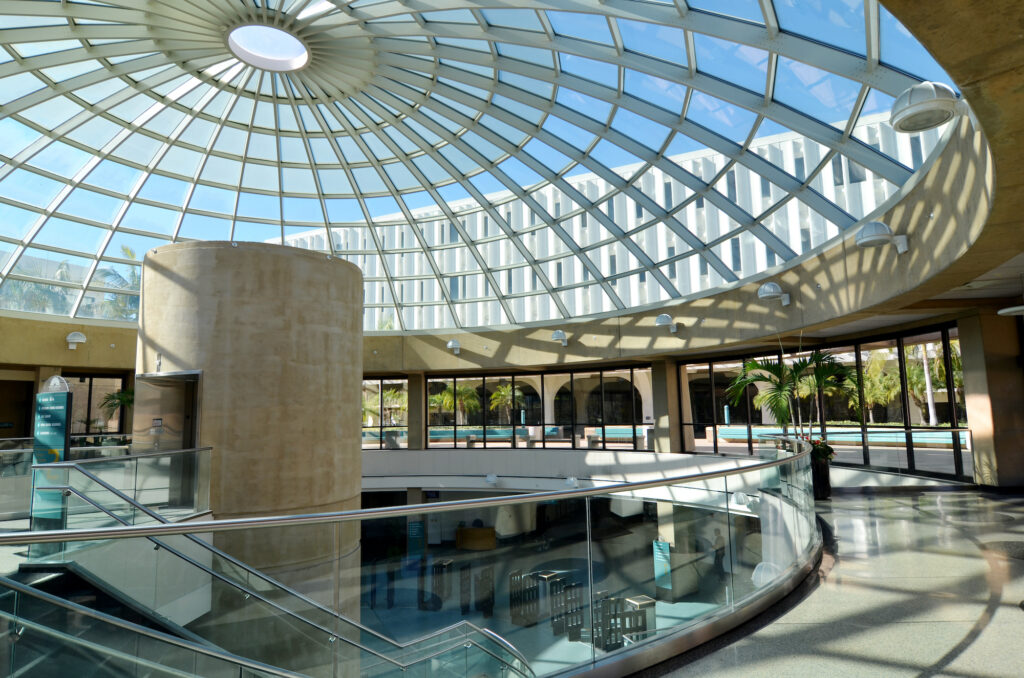
Conference Schedule
- Sunday, October 6, 2024
Conference welcome and networking event at Conference Hotel from 5:30pm-7:00pm - Monday, October 7, 2024
Full conference day from 8am-4:30pm, lunch provided (breakfast included at Conference Hotel) - Tuesday, October 8, 2024
Full conference day from 8am-4:30pm, lunch provided (breakfast included at Conference Hotel) - Wednesday, October 9, 2024
Tours from 10am-1pm - Monday, November 4, 2024
Online conference from 7:30am-4:30pm Central Time
March 1 – Call for Proposals
March 30 – Deadline for Proposals
May 15 – Notifications of acceptance, Scholarship Applications & Award Nominations Open
June 1 – Scholarship Applications & Award Nominations due, Registration Opens
June 15 – Scholarship & Award Notifications
July 1 – Early Bird/Presenter Registration due
September 5 – Last Day to Book Hotel at Discounted Rate
We encourage proposals that address these key conference concepts:
- Personal and Collective Meaning-Making: In a diverse and interconnected world, how do individuals and communities create meaning from the visual content they encounter? Presentations may explore the dynamic processes of interpretation and reinterpretation, emphasizing the role of culture, identity, and lived experiences in this meaning-making.
- Agentive Practice: Presentations may consider the ways in which individuals and groups leverage their visual literacy skills to challenge existing paradigms, subvert oppressive norms, and promote social justice.
- Restorying, Representing, and Redesigning Dominant Narratives: Dominant narratives often reinforce power structures and inequalities. This conference will offer a platform for discussions on how visual literacy can be harnessed to deconstruct these narratives and replace them with counter-stories that reflect marginalized voices and experiences.
- Acknowledging and Shifting Power Relationships: Visual and multimodal texts can play a crucial role in recognizing power imbalances and creating opportunities for empowerment and equity. Presentations may demonstrate how to deconstruct and reconstruct power dynamics in visual representations, media, and society.
- Critiquing and Transforming Sociopolitical Realities: Further, visual images often serve as mirrors reflecting the sociopolitical landscapes of our time. Through critical analysis and creative responses, presentations may explore how visual literacy can be a catalyst for critiquing and reshaping these realities (Cappello, Wiseman, & Turner, 2019).
We encourage scholars, artists, educators, activists, museum educators, and anyone interested in the transformative power of visual literacy to join us in this exciting exploration of perspectives and the potential to effect positive change.
Please submit your proposal here. Deadline for Proposals has been extended to April 15, 2024.
Virtual Session Information:
Virtual presentations will be offered for those unable to travel to San Diego, California and will prioritize presentations from our international members and presenters who are unable to travel. Sessions will include paper presentations (20 min + 5 min Q&A).
In-person Session Information:
Sessions will include formats such as campfire, paper presentations, panel discussions, poster sessions, round table, and workshops.
Campfire (55 minutes)
Campfire Sessions begin like a paper presentation, though after 15 or 20 minutes the focus shifts from the presenter to the audience. For the remainder of the session, the presenter becomes a facilitator, inviting comments, insights, and questions from those around the room. Campfire sessions allow attendees to drive their own learning and share experiences with others, which also assists with networking.
Paper presentation (20 min with 5 min Q&A)
Paper presentations are descriptions of completed projects. The author will present on a project’s research question, methodology, discussion, and results for approximately 20 minutes, using technology as appropriate. The remaining 5 minutes are reserved for questions.
Panel discussions (45 minutes with 10 min Q&A)
Discussion panels on a specific issue by a group of practitioners, and/or researchers. They are guided by a chairperson, involving three to five panelists with different positions in the topic.
Poster session (1 hour)
Poster sessions are similar to paper presentations in that they represent completed projects, though are focused towards stimulating discussion. Posters should be easy to read and highlight the major points of the author’s research. This year, all posters will be presented digitally. Details will be provided to accepted poster presenters.
Round table (50 minutes with 5 min Q&A)
Round table presenters facilitate and engage in a structured discussion with participants. All attendees have an opportunity to comment, question, or respond.
Workshop (2 hours)
Workshops are long interactive skill sharing sessions. Presenters should have specific learning outcomes for the audience. Presenters are responsible for providing all materials.
Our Registration page is now live. Early bird & presenter registration rates will end July 1, 2024.
|
In person early bird or presenter |
$300 |
|
In person IVLA Member |
$375 |
|
In person non member |
$425 |
|
In person student early bird |
$150 |
|
In person Student IVLA member |
$150 |
|
In person student non member |
$195 |
|
Online Regular/Presenter |
$85 |
|
Online Student/Low- or middle-income country |
$45 |
|
In person one day pass |
$175 |
San Diego State University is located at 5500 Campanile Drive, San Diego, CA 92182 (Google map). There will be a shuttle bus from the Conference Hotel to and from the conference at SDSU offered in the morning before sessions begin and in the afternoon when sessions have ended.
Specifically, the conference will be hosted at the SDSU Digital Humanities Center which is located in the SDSU University Library. The Digital Humanities Center is located in the Library Addition (LA) Basement. You will enter the library through the Dome (Level 2) and will travel to the basement (B) of the Library Addition to get to the Digital Humanities Center. Afternoon sessions will be held in the Digital Humanities Center. Morning sessions will be held in the SDSU Union.
Please see here for a map of the Library and here for a map of the Library Addition, where the Digital Humanities Center is located.
San Diego International Airport
San Diego International Airport (IATA: SAN, ICAO: KSAN, FAA LID: SAN), formerly known as Lindbergh Field, is an international airport three miles (4.8 km; 2.6 mi) northwest of Downtown San Diego, California, United States.
Driving Directions to SDSU
From Interstate 8, exit at College Avenue and go south. San Diego State University will be on your right. Continue on College Avenue South through the Canyon Crest Drive/Alvarado Road stop light. Cross under two pedestrian bridges and turn left at your first opportunity. Parking 3 (P3) will be directly in front of you.
Parking at SDSU
Consult Parking & Transportation and SDSU Parking Information as you plan your visit to campus. You can also print a campus map prior to your visit.
Bus and Trolley Line
Beat the traffic and go green by taking the bus or Green Line trolley to the SDSU Transit Center. These public transportation routes connect the university to destinations throughout greater San Diego, including the airport, train station and Snapdragon Stadium. If you have never ridden before, the Bus and Trolley Rider’s Guide offers helpful tips as you plan your trip.
Bus and trolley fares vary depending on routes and passenger type, and exact fare is required. Some trolley ticket machines accept only $1 or $5 bills, and some accept credit/debit cards. The Metropolitan Transit System (MTS) offers Family Weekend Specials where up to two children aged 5 and under ride free with any paying passenger on all MTS routes. Get detailed ticket information.
Trolley Line
The Green Line Trolley connects east and west routes to SDSU. The trolley stops at the station located 55 feet underground. See the Trolley System Map for locations of each trolley stop.
Bus Routes
Buses stop on the SDSU Transit Center’s street level mezzanine. From the bus routes—11, 115, 856, 936, and MTS Rapid Route 215—that currently service the campus, you can transfer to anywhere in the San Diego area. All buses on SDSU’s routes are “bike buses” and provide wheelchair lift service.
Embassy Suites by Hilton San Diego Bay Downtown
601 Pacific Highway
San Diego, California
92101, USA
Enjoy views of the bay and San Diego skyline from the hotel, less than a mile from San Diego Convention Center, Petco Park, and the USS Midway Museum. The Gaslamp Quarter is a 15-minute walk away. Check-in at 4 pm and check-out at 11 am.
Rooms are at a discounted rate of $229 a night.
Book your reservation here.
The last day to book at the discounted rate is September 5, 2024.
If you would like to book “shoulder dates” (October 5 or 9), you should go to the top of the reservation page where it says “Edit Stay”. Then, update your dates to include the shoulder dates.
There will be a shuttle bus to and from the conference at SDSU offered in the morning before sessions begin and in the afternoon when sessions have ended.
Amenities
- Connecting rooms
- Free made-to-order breakfast
- Complimentary evening reception
- On-site restaurant
- Indoor pool
- Fitness center
- Pet-friendly rooms
- Room service
- Business center
- Valet parking for $60 per night
What’s nearby
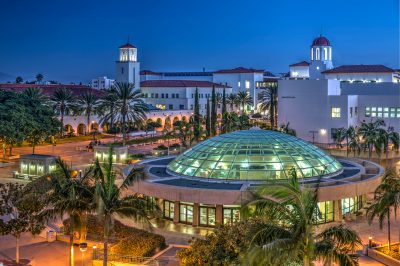
Conference Planning Chairs
Marva Cappello, PhD – Conference Co-Chair
Professor, Literacy Education
Director, Center for Visual Literacies
Director, SDSU/CGU Joint Doctoral Program in Education College of Education
Jacqueline Huddle – Conference Co-Chair
IVLA Vice-President
Visual Literacy and Resources Librarian
Herman B Wells Library
Indiana University-Bloomington
